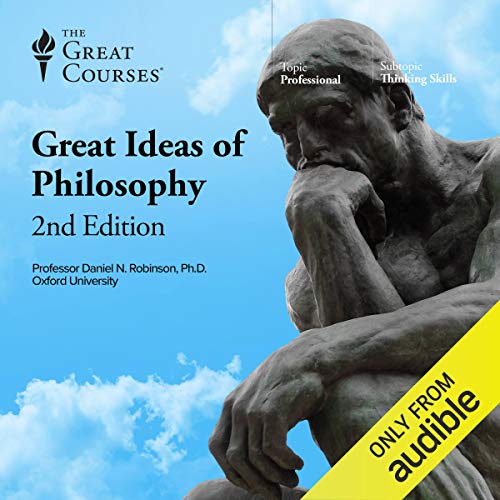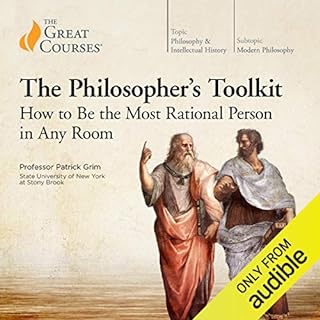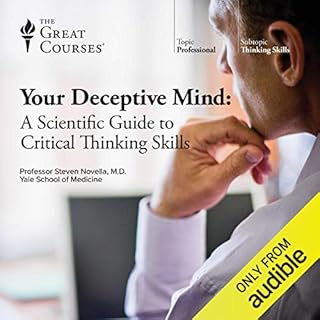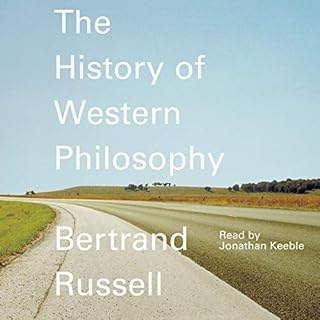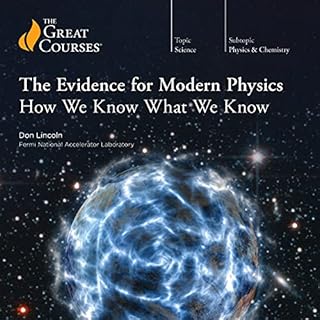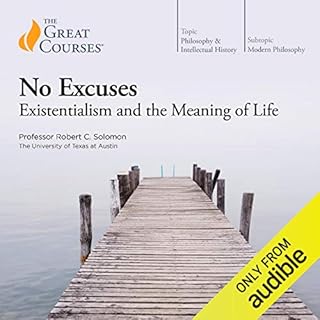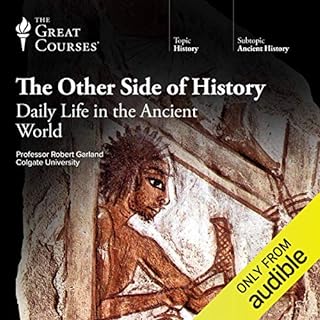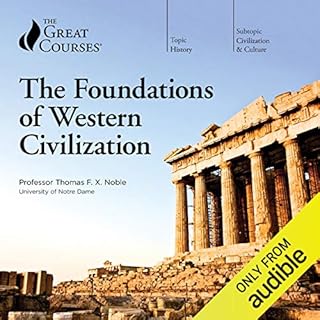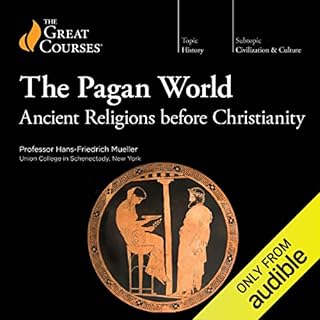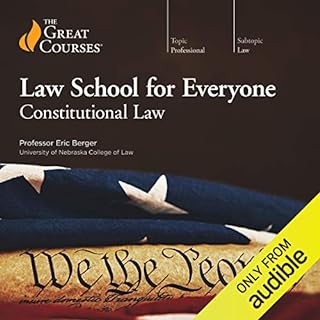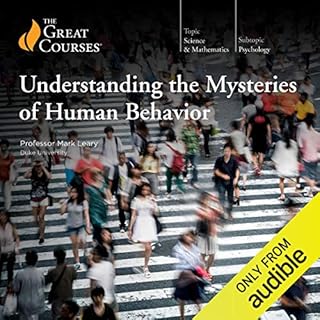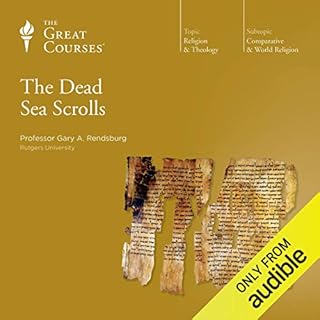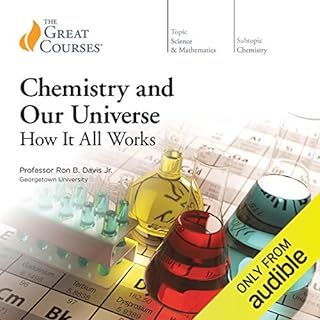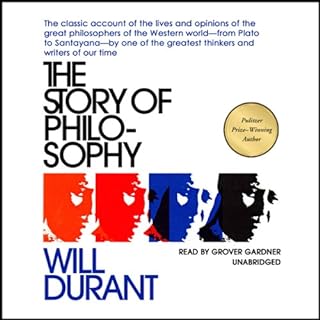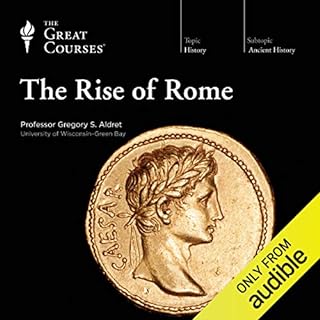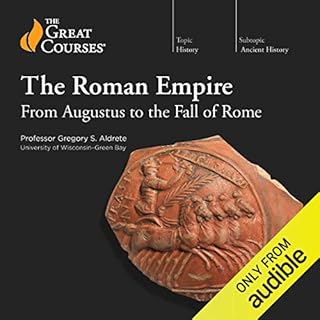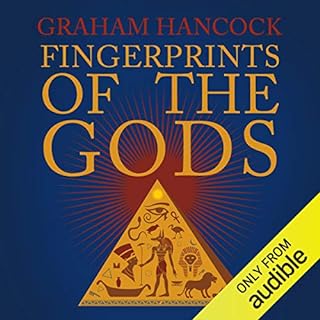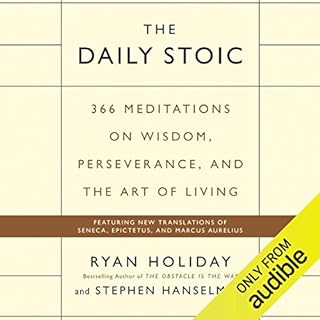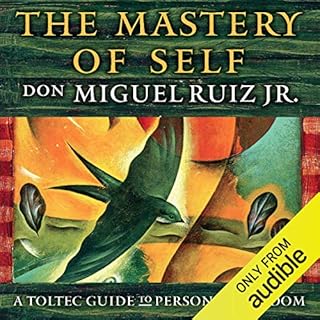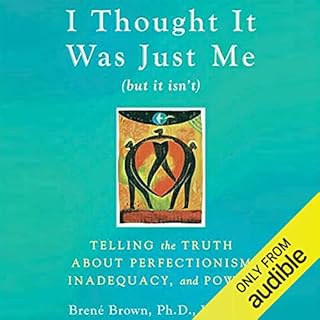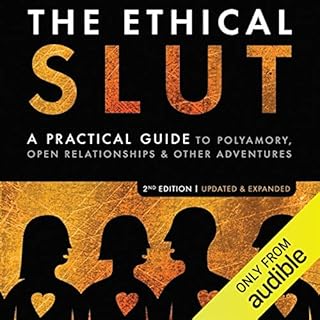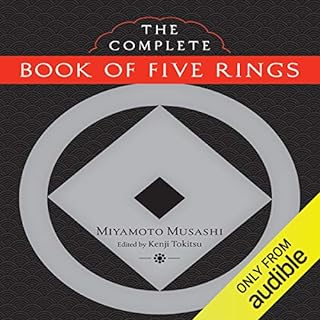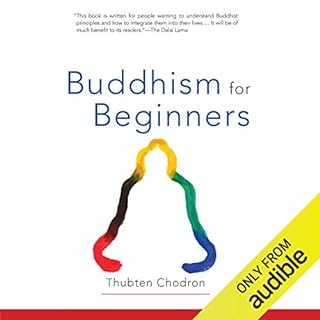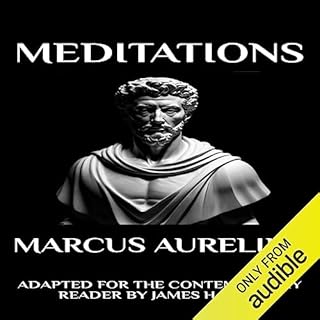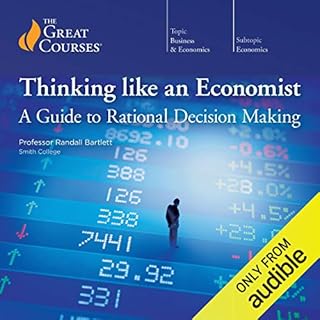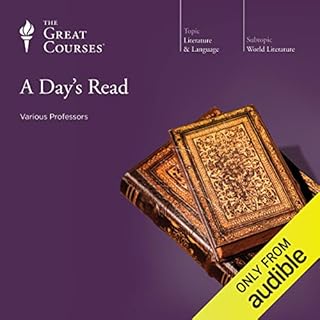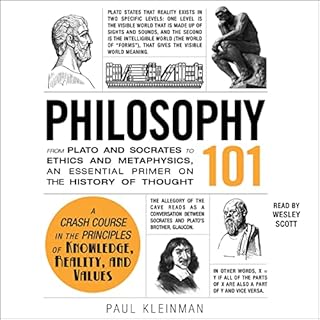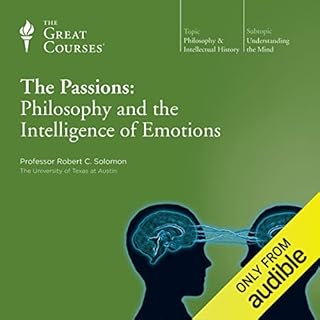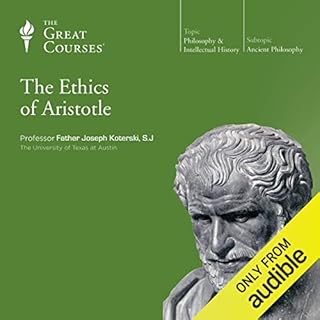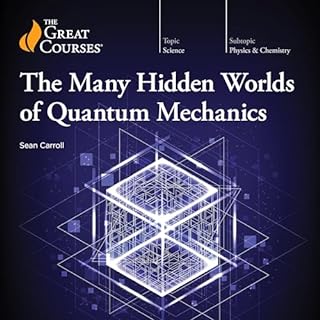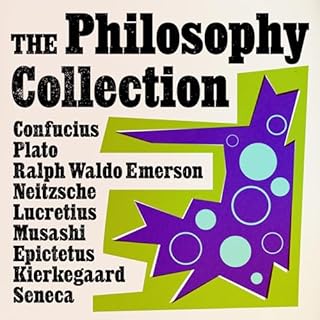-
The Great Ideas of Philosophy, 2nd Edition
- Narrado por: Daniel N. Robinson
- Duración: 30 h y 11 m
No se pudo agregar al carrito
Add to Cart failed.
Error al Agregar a Lista de Deseos.
Error al eliminar de la lista de deseos.
Error al añadir a tu biblioteca
Error al seguir el podcast
Error al dejar de seguir el podcast
 Exclusivo para miembros Prime: ¿Nuevo en Audible? Obtén 2 audiolibros gratis con tu prueba.
Exclusivo para miembros Prime: ¿Nuevo en Audible? Obtén 2 audiolibros gratis con tu prueba.Compra ahora por $59.95
No default payment method selected.
We are sorry. We are not allowed to sell this product with the selected payment method
Los oyentes también disfrutaron...
-
The Philosopher's Toolkit: How to Be the Most Rational Person in Any Room
- De: Patrick Grim, The Great Courses
- Narrado por: Patrick Grim
- Duración: 12 h y 2 m
- Grabación Original
-
General4.5 out of 5 stars 1,182
-
Narración:4.5 out of 5 stars 1,005
-
Historia4.5 out of 5 stars 994
Taught by award-winning Professor Patrick Grim of the State University of New York at Stony Brook, The Philosopher’s Toolkit: How to Be the Most Rational Person in Any Room arms you against the perils of bad thinking and supplies you with an arsenal of strategies to help you be more creative, logical, inventive, realistic, and rational in all aspects of your daily life.
-
1 out of 5 stars
-
This should NOT be an audio book
- De Brooks Emerson en 03-21-20
De: Patrick Grim, y otros
-
Your Deceptive Mind: A Scientific Guide to Critical Thinking Skills
- De: Steven Novella, The Great Courses
- Narrado por: Steven Novella
- Duración: 12 h y 39 m
- Grabación Original
-
General4.5 out of 5 stars 8,294
-
Narración:4.5 out of 5 stars 7,282
-
Historia4.5 out of 5 stars 7,168
No skill is more important in today's world than being able to think about, understand, and act on information in an effective and responsible way. What's more, at no point in human history have we had access to so much information, with such relative ease, as we do in the 21st century. But because misinformation out there has increased as well, critical thinking is more important than ever. These 24 rewarding lectures equip you with the knowledge and techniques you need to become a savvier, sharper critical thinker in your professional and personal life.
-
3 out of 5 stars
-
Same Material Different Title
- De rkeinc en 09-21-14
De: Steven Novella, y otros
-
A History of Western Philosophy
- De: Bertrand Russell
- Narrado por: Jonathan Keeble
- Duración: 38 h y 3 m
- Versión completa
-
General4.5 out of 5 stars 275
-
Narración:5 out of 5 stars 226
-
Historia4.5 out of 5 stars 226
Considered to be one of the most important philosophical works of all time, the History of Western Philosophy is a dazzlingly unique exploration of the ideologies of significant philosophers throughout the ages - from Plato and Aristotle through to Spinoza, Kant and the 20th century. Written by a man who changed the history of philosophy himself, this is an account that has never been rivaled since its first publication over 60 years ago.
-
4 out of 5 stars
-
Russell's Philosophy, Some History Included
- De Donald en 06-19-21
De: Bertrand Russell
-
The Evidence for Modern Physics
- How We Know What We Know
- De: Professor Don Lincoln, The Great Courses
- Narrado por: Professor Don Lincoln
- Duración: 11 h y 54 m
- Grabación Original
-
General5 out of 5 stars 435
-
Narración:5 out of 5 stars 371
-
Historia5 out of 5 stars 367
In this 24-lesson course aimed at non-scientists, noted particle physicist Dr. Don Lincoln of Fermi National Accelerator Laboratory covers more than a century of progress in physics, describing exactly how scientists reach the conclusions they do. He starts with the atom, which was long hypothesized but wasn’t definitively proven until a paper by Albert Einstein in 1905. That was just the beginning, as researchers probed ever deeper into the atom’s complex structure, leading to the weird findings of quantum mechanics.
-
5 out of 5 stars
-
Strongly Recommend for Everyone
- De Liam A en 05-23-21
De: Professor Don Lincoln, y otros
-
Einstein's Relativity and the Quantum Revolution: Modern Physics for Non-Scientists, 2nd Edition
- De: Richard Wolfson, The Great Courses
- Narrado por: Richard Wolfson
- Duración: 12 h y 17 m
- Grabación Original
-
General4.5 out of 5 stars 5,682
-
Narración:4.5 out of 5 stars 4,994
-
Historia4.5 out of 5 stars 4,901
"It doesn't take an Einstein to understand modern physics," says Professor Wolfson at the outset of these 24 lectures on what may be the most important subjects in the universe: relativity and quantum physics. Both have reputations for complexity. But the basic ideas behind them are, in fact, simple and comprehensible by anyone. These dynamic and illuminating lectures begin with a brief overview of theories of physical reality starting with Aristotle and culminating in Newtonian or "classical" physics.
-
4 out of 5 stars
-
Great primer for hard SF fans and physics laymen
- De David en 01-05-15
De: Richard Wolfson, y otros
-
No Excuses: Existentialism and the Meaning of Life
- De: Robert C. Solomon, The Great Courses
- Narrado por: Robert C. Solomon
- Duración: 12 h y 7 m
- Grabación Original
-
General4.5 out of 5 stars 2,305
-
Narración:4.5 out of 5 stars 1,978
-
Historia4.5 out of 5 stars 1,938
What is life? What is my place in it? What choices do these questions obligate me to make? More than a half-century after it burst upon the intellectual scene - with roots that extend to the mid-19th century - Existentialism's quest to answer these most fundamental questions of individual responsibility, morality, and personal freedom, life has continued to exert a profound attraction.
-
4 out of 5 stars
-
Good for even a non-existentialist
- De Gary en 07-24-15
De: Robert C. Solomon, y otros
-
The Philosopher's Toolkit: How to Be the Most Rational Person in Any Room
- De: Patrick Grim, The Great Courses
- Narrado por: Patrick Grim
- Duración: 12 h y 2 m
- Grabación Original
-
General4.5 out of 5 stars 1,182
-
Narración:4.5 out of 5 stars 1,005
-
Historia4.5 out of 5 stars 994
Taught by award-winning Professor Patrick Grim of the State University of New York at Stony Brook, The Philosopher’s Toolkit: How to Be the Most Rational Person in Any Room arms you against the perils of bad thinking and supplies you with an arsenal of strategies to help you be more creative, logical, inventive, realistic, and rational in all aspects of your daily life.
-
1 out of 5 stars
-
This should NOT be an audio book
- De Brooks Emerson en 03-21-20
De: Patrick Grim, y otros
-
Your Deceptive Mind: A Scientific Guide to Critical Thinking Skills
- De: Steven Novella, The Great Courses
- Narrado por: Steven Novella
- Duración: 12 h y 39 m
- Grabación Original
-
General4.5 out of 5 stars 8,294
-
Narración:4.5 out of 5 stars 7,282
-
Historia4.5 out of 5 stars 7,168
No skill is more important in today's world than being able to think about, understand, and act on information in an effective and responsible way. What's more, at no point in human history have we had access to so much information, with such relative ease, as we do in the 21st century. But because misinformation out there has increased as well, critical thinking is more important than ever. These 24 rewarding lectures equip you with the knowledge and techniques you need to become a savvier, sharper critical thinker in your professional and personal life.
-
3 out of 5 stars
-
Same Material Different Title
- De rkeinc en 09-21-14
De: Steven Novella, y otros
-
A History of Western Philosophy
- De: Bertrand Russell
- Narrado por: Jonathan Keeble
- Duración: 38 h y 3 m
- Versión completa
-
General4.5 out of 5 stars 275
-
Narración:5 out of 5 stars 226
-
Historia4.5 out of 5 stars 226
Considered to be one of the most important philosophical works of all time, the History of Western Philosophy is a dazzlingly unique exploration of the ideologies of significant philosophers throughout the ages - from Plato and Aristotle through to Spinoza, Kant and the 20th century. Written by a man who changed the history of philosophy himself, this is an account that has never been rivaled since its first publication over 60 years ago.
-
4 out of 5 stars
-
Russell's Philosophy, Some History Included
- De Donald en 06-19-21
De: Bertrand Russell
-
The Evidence for Modern Physics
- How We Know What We Know
- De: Professor Don Lincoln, The Great Courses
- Narrado por: Professor Don Lincoln
- Duración: 11 h y 54 m
- Grabación Original
-
General5 out of 5 stars 435
-
Narración:5 out of 5 stars 371
-
Historia5 out of 5 stars 367
In this 24-lesson course aimed at non-scientists, noted particle physicist Dr. Don Lincoln of Fermi National Accelerator Laboratory covers more than a century of progress in physics, describing exactly how scientists reach the conclusions they do. He starts with the atom, which was long hypothesized but wasn’t definitively proven until a paper by Albert Einstein in 1905. That was just the beginning, as researchers probed ever deeper into the atom’s complex structure, leading to the weird findings of quantum mechanics.
-
5 out of 5 stars
-
Strongly Recommend for Everyone
- De Liam A en 05-23-21
De: Professor Don Lincoln, y otros
-
Einstein's Relativity and the Quantum Revolution: Modern Physics for Non-Scientists, 2nd Edition
- De: Richard Wolfson, The Great Courses
- Narrado por: Richard Wolfson
- Duración: 12 h y 17 m
- Grabación Original
-
General4.5 out of 5 stars 5,682
-
Narración:4.5 out of 5 stars 4,994
-
Historia4.5 out of 5 stars 4,901
"It doesn't take an Einstein to understand modern physics," says Professor Wolfson at the outset of these 24 lectures on what may be the most important subjects in the universe: relativity and quantum physics. Both have reputations for complexity. But the basic ideas behind them are, in fact, simple and comprehensible by anyone. These dynamic and illuminating lectures begin with a brief overview of theories of physical reality starting with Aristotle and culminating in Newtonian or "classical" physics.
-
4 out of 5 stars
-
Great primer for hard SF fans and physics laymen
- De David en 01-05-15
De: Richard Wolfson, y otros
-
No Excuses: Existentialism and the Meaning of Life
- De: Robert C. Solomon, The Great Courses
- Narrado por: Robert C. Solomon
- Duración: 12 h y 7 m
- Grabación Original
-
General4.5 out of 5 stars 2,305
-
Narración:4.5 out of 5 stars 1,978
-
Historia4.5 out of 5 stars 1,938
What is life? What is my place in it? What choices do these questions obligate me to make? More than a half-century after it burst upon the intellectual scene - with roots that extend to the mid-19th century - Existentialism's quest to answer these most fundamental questions of individual responsibility, morality, and personal freedom, life has continued to exert a profound attraction.
-
4 out of 5 stars
-
Good for even a non-existentialist
- De Gary en 07-24-15
De: Robert C. Solomon, y otros
-
How the Earth Works
- De: Michael E. Wysession, The Great Courses
- Narrado por: Michael E. Wysession
- Duración: 24 h y 31 m
- Grabación Original
-
General4.5 out of 5 stars 1,691
-
Narración:4.5 out of 5 stars 1,480
-
Historia4.5 out of 5 stars 1,462
How the Earth Works takes you on an astonishing journey through time and space. In 48 lectures, you will look at what went into making our planet - from the big bang, to the formation of the solar system, to the subsequent evolution of Earth.
-
5 out of 5 stars
-
Excellent course
- De Doug B. en 05-23-19
De: Michael E. Wysession, y otros
-
The Other Side of History: Daily Life in the Ancient World
- De: Robert Garland, The Great Courses
- Narrado por: Robert Garland
- Duración: 24 h y 28 m
- Grabación Original
-
General4.5 out of 5 stars 8,726
-
Narración:4.5 out of 5 stars 7,837
-
Historia4.5 out of 5 stars 7,785
Look beyond the abstract dates and figures, kings and queens, and battles and wars that make up so many historical accounts. Over the course of 48 richly detailed lectures, Professor Garland covers the breadth and depth of human history from the perspective of the so-called ordinary people, from its earliest beginnings through the Middle Ages.
-
5 out of 5 stars
-
Tantalizing time trip
- De Mark en 08-21-13
De: Robert Garland, y otros
-
The Foundations of Western Civilization
- De: Thomas F. X. Noble, The Great Courses
- Narrado por: Thomas F. X. Noble
- Duración: 24 h y 51 m
- Grabación Original
-
General4.5 out of 5 stars 1,670
-
Narración:4.5 out of 5 stars 1,434
-
Historia4.5 out of 5 stars 1,419
What is Western Civilization? According to Professor Noble, it is "much more than human and political geography," encompassing myriad forms of political and institutional structures - from monarchies to participatory republics - and its own traditions of political discourse. It involves choices about who gets to participate in any given society and the ways in which societies have resolved the tension between individual self-interest and the common good.
-
2 out of 5 stars
-
Not Engaging or Very Interesting
- De Tommy D'Angelo en 03-05-17
De: Thomas F. X. Noble, y otros
-
Food: A Cultural Culinary History
- De: Ken Albala, The Great Courses
- Narrado por: Ken Albala
- Duración: 18 h y 22 m
- Grabación Original
-
General4.5 out of 5 stars 5,148
-
Narración:4.5 out of 5 stars 4,563
-
Historia4.5 out of 5 stars 4,527
Eating is an indispensable human activity. As a result, whether we realize it or not, the drive to obtain food has been a major catalyst across all of history, from prehistoric times to the present. Epicure Jean-Anthelme Brillat-Savarin said it best: "Gastronomy governs the whole life of man."
-
5 out of 5 stars
-
One of my top 3 favorite courses!
- De Jessica en 12-28-13
De: Ken Albala, y otros
-
The Pagan World
- Ancient Religions Before Christianity
- De: Hans-Friedrich Mueller, The Great Courses
- Narrado por: Hans-Friedrich Mueller
- Duración: 12 h y 34 m
- Grabación Original
-
General4.5 out of 5 stars 1,356
-
Narración:4.5 out of 5 stars 1,175
-
Historia4.5 out of 5 stars 1,165
In The Pagan World: Ancient Religions Before Christianity, you will meet the fascinating, ancient polytheistic peoples of the Mediterranean and beyond, their many gods and goddesses, and their public and private worship practices, as you come to appreciate the foundational role religion played in their lives. Professor Hans-Friedrich Mueller, of Union College in Schenectady, New York, makes this ancient world come alive in 24 lectures with captivating stories of intrigue, artifacts, illustrations, and detailed descriptions from primary sources of intriguing personalities.
-
5 out of 5 stars
-
The Pagan World
- De arnold e andersen md Dr Andersen en 03-28-20
De: Hans-Friedrich Mueller, y otros
-
Law School for Everyone: Constitutional Law
- De: Eric Berger, The Great Courses
- Narrado por: Eric Berger
- Duración: 6 h y 28 m
- Grabación Original
-
General4.5 out of 5 stars 769
-
Narración:4.5 out of 5 stars 667
-
Historia4.5 out of 5 stars 662
Americans wage many of today’s fiercest policy debates and culture wars over constitutional meaning. It’s because constitutional law is so fundamental to our democracy that law schools across the country teach the subject. It's the area of law that determines what federal and state governments are permitted to do, and what rights you have as an individual citizen of the US. Here, you'll get the same accessible, well-rounded introduction to constitutional law as a typical law student - but with the added benefit of noted constitutional scholar Eric Berger's brilliant insights.
-
4 out of 5 stars
-
Read with this Neil Gorsuch!
- De Amazon Customer en 02-03-20
De: Eric Berger, y otros
-
Understanding the Mysteries of Human Behavior
- De: Mark Leary, The Great Courses
- Narrado por: Mark Leary
- Duración: 12 h y 11 m
- Grabación Original
-
General4.5 out of 5 stars 3,344
-
Narración:4.5 out of 5 stars 2,911
-
Historia4.5 out of 5 stars 2,878
Every day of your life is spent surrounded by mysteries that involve what appear to be rather ordinary human behaviors. What makes you happy? Where did your personality come from? Why do you have trouble controlling certain behaviors? Why do you behave differently as an adult than you did as an adolescent?Since the start of recorded history, and probably even before, people have been interested in answering questions about why we behave the way we do.
-
1 out of 5 stars
-
I wanted to like this course
- De Diane Tincher en 08-06-18
De: Mark Leary, y otros
-
The Dead Sea Scrolls
- De: Gary A. Rendsburg, The Great Courses
- Narrado por: Gary A. Rendsburg
- Duración: 12 h y 21 m
- Grabación Original
-
General4.5 out of 5 stars 1,496
-
Narración:4.5 out of 5 stars 1,325
-
Historia4.5 out of 5 stars 1,314
Whether complete or only fragmentary, the 930 extant Dead Sea Scrolls irrevocably altered how we look at and understand the foundations of faith and religious practice. Now you can get a comprehensive introduction to this unique series of archaeological documents, and to scholars' evolving understanding of their authorship and significance, with these 24 lectures. Learn what the scrolls are, what they contain, and how the insights they offered into religious and ancient history came into focus.
-
4 out of 5 stars
-
A comprehensive overview of the Qumran Scrolls
- De Jacobus en 09-25-13
De: Gary A. Rendsburg, y otros
-
Chemistry and Our Universe
- How It All Works
- De: Ron B. Davis, The Great Courses
- Narrado por: Ron B. Davis
- Duración: 30 h y 6 m
- Grabación Original
-
General4.5 out of 5 stars 505
-
Narración:4.5 out of 5 stars 399
-
Historia4.5 out of 5 stars 395
Chemistry and Our Universe: How It All Works is your in-depth introduction to this vital field, taught through 60 engaging half-hour lectures that are suitable for any background or none at all. Covering a year’s worth of introductory general chemistry at the college level, plus intriguing topics that are rarely discussed in the classroom, this amazingly comprehensive course requires nothing more advanced than high-school math. Your guide is Professor Ron B. Davis, Jr., a research chemist and award-winning teacher at Georgetown University.
-
4 out of 5 stars
-
Great Professor, Hard to Follow.
- De Jen en 05-14-19
De: Ron B. Davis, y otros
-
The Story of Philosophy
- The Lives and Opinions of the Greater Philosophers
- De: Will Durant
- Narrado por: Grover Gardner
- Duración: 19 h y 27 m
- Versión completa
-
General4.5 out of 5 stars 1,842
-
Narración:4.5 out of 5 stars 1,490
-
Historia4.5 out of 5 stars 1,474
Durant lucidly describes the philosophical systems of such world-famous “monarchs of the mind” as Plato, Aristotle, Francis Bacon, Spinoza, Kant, Voltaire, and Nietzsche. Along with their ideas, he offers their flesh-and-blood biographies, placing their thoughts within their own time and place and elucidating their influence on our modern intellectual heritage. This book is packed with wisdom and wit.
-
5 out of 5 stars
-
Fantastic and insightful book
- De ESK en 01-25-13
De: Will Durant
-
The Rise of Rome
- De: The Great Courses, Gregory S. Aldrete
- Narrado por: Gregory S. Aldrete
- Duración: 12 h y 16 m
- Grabación Original
-
General5 out of 5 stars 1,028
-
Narración:4.5 out of 5 stars 901
-
Historia5 out of 5 stars 892
The Roman Republic is one of the most breathtaking civilizations in world history. Between roughly 500 BCE to the turn of the millennium, a modest city-state developed an innovative system of government and expanded into far-flung territories across Europe, Northern Africa, and the Middle East. This powerful civilization inspired America's founding fathers, gifted us a blueprint for amazing engineering innovations, left a vital trove of myths, and has inspired the human imagination for 2,000 years.
-
3 out of 5 stars
-
Very good, but doesn't stand out
- De Christopher en 02-08-18
De: The Great Courses, y otros
-
The Roman Empire: From Augustus to the Fall of Rome
- De: Gregory S. Aldrete, The Great Courses
- Narrado por: Gregory S. Aldrete
- Duración: 12 h y 41 m
- Grabación Original
-
General4.5 out of 5 stars 682
-
Narración:4.5 out of 5 stars 599
-
Historia4.5 out of 5 stars 592
The Roman Empire: From Augustus to the Fall of Rome traces the breathtaking history from the empire’s foundation by Augustus to its Golden Age in the 2nd century CE through a series of ever-worsening crises until its ultimate disintegration. Taught by acclaimed Professor Gregory S. Aldrete of the University of Wisconsin-Green Bay, these 24 captivating lectures offer you the chance to experience this story like never before, incorporating the latest historical insights that challenge our previous notions of Rome’s decline.
-
5 out of 5 stars
-
Gregory S. Aldrete is a treasure
- De Laurel Tucker en 02-04-19
De: Gregory S. Aldrete, y otros
Resumen del Editor
Grasp the important ideas that have served as the backbone of philosophy across the ages with this extraordinary 60-lecture series. This is your opportunity to explore the enormous range of philosophical perspectives and ponder the most important and enduring of human questions - without spending your life poring over dense philosophical texts.
Professor Robinson guides you through more than 2,000 years of philosophical thinking and gives you a coherent, comprehensive, and beautifully articulated introduction to the great conversation of philosophy. Every lecture contains substance that can change your view of the world and its history.
You'll journey from the early philosophical ideas of Socrates, Plato, and Aristotle; chart the origins of Christian philosophy and investigate the Islamic scholars who preserved and extended Greek thought during the Middle Ages; and venture through Enlightenment contributions to philosophy, from Francis Bacon to Locke, Hume, Kant, Mill, and Adam Smith.
Then shift your attention to the modern era, where you see groundbreaking ideas like psychoanalysis, pragmatism, and nihilism, as well as the collision between the inherently social understanding of meaning created by Wittgenstein, the vastly different estimation of human thought developed by the code-breaking genius Alan Turing, and the subtle response to him made by the American philosopher John Searle.
While the lectures cover an enormous range of key thinkers and ideas, they always focus on the most important ideas. The result is a course that gives you everything you need to finally grasp humanity's exciting philosophical history - without years of intense academic study and piles of dense reading.
PLEASE NOTE: When you purchase this title, the accompanying reference material will be available in your Library section along with the audio.
Featured Article: The Best Philosophy Audiobooks for Getting Lost in Thought
Philosophy asks and analyzes the questions that have pressed on humankind for centuries: What does it mean to be human? Why are we here? From ancient to contemporary times, these questions have been answered with varying, and sometimes contradictory, schools of thought. Our picks span centuries and subjects, and draw parallels across time to embolden listeners to dive deep into questions about the fundamental nature of our reality.
Más títulos del mismo
Relacionado con este tema
-
The Art of War
- De: Sun Tzu
- Narrado por: Aidan Gillen
- Duración: 1 h y 7 m
- Versión completa
-
General4.5 out of 5 stars 40,812
-
Narración:4.5 out of 5 stars 33,767
-
Historia4.5 out of 5 stars 33,348
The 13 chapters of The Art of War, each devoted to one aspect of warfare, were compiled by the high-ranking Chinese military general, strategist, and philosopher Sun-Tzu. In spite of its battlefield specificity, The Art of War has found new life in the modern age, with leaders in fields as wide and far-reaching as world politics, human psychology, and corporate strategy finding valuable insight in its timeworn words.
-
5 out of 5 stars
-
The actual book The Art of War, not a commentary
- De Fred271 en 12-31-19
De: Sun Tzu
-
Backfired: The Vaping Wars
- De: Leon Neyfakh, Prologue Projects
- Narrado por: Leon Neyfakh, Arielle Pardes
- Duración: 7 h y 21 m
- Grabación Original
-
General5 out of 5 stars 188
-
Narración:5 out of 5 stars 187
-
Historia5 out of 5 stars 187
When two Stanford graduate students set out to create a new kind of cigarette that wouldn’t kill them, they didn’t foresee all the obstacles that lay ahead — or the powerful forces their invention would unleash. Nearly 10 years after the launch of the JUUL, Backfired: The Vaping Wars asks: Could e-cigarettes have been the solution to one of the world’s most pressing public health problems—or was this technology doomed to introduce a whole new generation to nicotine, and end up perpetuating an intractable addiction?
-
5 out of 5 stars
-
Thank you…
- De Jay R Ewing en 06-24-24
De: Leon Neyfakh, y otros
-
Fingerprints of the Gods
- The Quest Continues
- De: Graham Hancock
- Narrado por: Graham Hancock
- Duración: 18 h y 31 m
- Versión completa
-
General4.5 out of 5 stars 8,628
-
Narración:5 out of 5 stars 7,633
-
Historia4.5 out of 5 stars 7,592
Fingerprints of the Gods is the revolutionary rewrite of history that has persuaded millions of listeners throughout the world to change their preconceptions about the history behind modern society. An intellectual detective story, this unique history audiobook directs probing questions at orthodox history, presenting disturbing new evidence that historians have tried - but failed - to explain.
-
4 out of 5 stars
-
Classic in Historical Mysteries
- De Kelly en 09-05-19
De: Graham Hancock
-
The Daily Stoic
- 366 Meditations on Wisdom, Perseverance, and the Art of Living
- De: Ryan Holiday, Stephen Hanselman
- Narrado por: Brian Holsopple
- Duración: 10 h y 6 m
- Versión completa
-
General5 out of 5 stars 3,147
-
Narración:4.5 out of 5 stars 2,636
-
Historia5 out of 5 stars 2,601
Why have history's greatest minds - from George Washington to Frederick the Great to Ralph Waldo Emerson along with today's top performers, from Super Bowl-winning football coaches to CEOs and celebrities - embraced the wisdom of the ancient Stoics? Because they realize that the most valuable wisdom is timeless and that philosophy is for living a better life, not a classroom exercise. The Daily Stoic offers a daily devotional of Stoic insights and exercises, featuring all-new translations.
-
2 out of 5 stars
-
Not well made as audio
- De Andreas en 12-27-16
De: Ryan Holiday, y otros
-
Letters from Guantánamo
- De: Mansoor Adayfi, Antonio Aiello
- Narrado por: Mansoor Adayfi, Fajer Al-Kaisi, Elias Khalil, y otros
- Duración: 3 h y 55 m
- Grabación Original
-
General5 out of 5 stars 137
-
Narración:5 out of 5 stars 137
-
Historia5 out of 5 stars 137
In weeks after the September 11 attacks, 18-year-old Mansoor Adayfi was kidnapped by Afghan militia and sold to US forces for bounty money. After months of interrogations, he was sent to the US military prison at Guantánamo Bay, Cuba, as one of its first prisoners. Like the nearly 800 other men imprisoned at Guantanamo, Adayfi didn’t know why he was imprisoned or for how long. He had never seen a skyscraper and couldn’t imagine what the Twin Towers of the World Trade Center looked like, much less how they were destroyed.
-
5 out of 5 stars
-
An important reminder
- De Dave Heilman en 05-25-24
De: Mansoor Adayfi, y otros
-
This Is Not a Game with Marc Fennell
- De: Marc Fennell
- Narrado por: Marc Fennell
- Duración: 3 h y 19 m
- Versión completa
-
General4.5 out of 5 stars 107
-
Narración:4.5 out of 5 stars 103
-
Historia4.5 out of 5 stars 103
This Is Not a Game is the extraordinary untold story of the internet’s first conspiracy theory, the legend of Ong’s Hat. Marc Fennell will dive deep into a previously unexplored world of tech hippies, eccentric web subcultures and simmering paranoia, uncovering how this tongue-in-cheek artistic experiment backfired on its creator and went on to influence much of what’s wrong with the internet today.
-
5 out of 5 stars
-
WOW!
- De pondo en 05-09-24
De: Marc Fennell
-
The Art of War
- De: Sun Tzu
- Narrado por: Aidan Gillen
- Duración: 1 h y 7 m
- Versión completa
-
General4.5 out of 5 stars 40,812
-
Narración:4.5 out of 5 stars 33,767
-
Historia4.5 out of 5 stars 33,348
The 13 chapters of The Art of War, each devoted to one aspect of warfare, were compiled by the high-ranking Chinese military general, strategist, and philosopher Sun-Tzu. In spite of its battlefield specificity, The Art of War has found new life in the modern age, with leaders in fields as wide and far-reaching as world politics, human psychology, and corporate strategy finding valuable insight in its timeworn words.
-
5 out of 5 stars
-
The actual book The Art of War, not a commentary
- De Fred271 en 12-31-19
De: Sun Tzu
-
Backfired: The Vaping Wars
- De: Leon Neyfakh, Prologue Projects
- Narrado por: Leon Neyfakh, Arielle Pardes
- Duración: 7 h y 21 m
- Grabación Original
-
General5 out of 5 stars 188
-
Narración:5 out of 5 stars 187
-
Historia5 out of 5 stars 187
When two Stanford graduate students set out to create a new kind of cigarette that wouldn’t kill them, they didn’t foresee all the obstacles that lay ahead — or the powerful forces their invention would unleash. Nearly 10 years after the launch of the JUUL, Backfired: The Vaping Wars asks: Could e-cigarettes have been the solution to one of the world’s most pressing public health problems—or was this technology doomed to introduce a whole new generation to nicotine, and end up perpetuating an intractable addiction?
-
5 out of 5 stars
-
Thank you…
- De Jay R Ewing en 06-24-24
De: Leon Neyfakh, y otros
-
Fingerprints of the Gods
- The Quest Continues
- De: Graham Hancock
- Narrado por: Graham Hancock
- Duración: 18 h y 31 m
- Versión completa
-
General4.5 out of 5 stars 8,628
-
Narración:5 out of 5 stars 7,633
-
Historia4.5 out of 5 stars 7,592
Fingerprints of the Gods is the revolutionary rewrite of history that has persuaded millions of listeners throughout the world to change their preconceptions about the history behind modern society. An intellectual detective story, this unique history audiobook directs probing questions at orthodox history, presenting disturbing new evidence that historians have tried - but failed - to explain.
-
4 out of 5 stars
-
Classic in Historical Mysteries
- De Kelly en 09-05-19
De: Graham Hancock
-
The Daily Stoic
- 366 Meditations on Wisdom, Perseverance, and the Art of Living
- De: Ryan Holiday, Stephen Hanselman
- Narrado por: Brian Holsopple
- Duración: 10 h y 6 m
- Versión completa
-
General5 out of 5 stars 3,147
-
Narración:4.5 out of 5 stars 2,636
-
Historia5 out of 5 stars 2,601
Why have history's greatest minds - from George Washington to Frederick the Great to Ralph Waldo Emerson along with today's top performers, from Super Bowl-winning football coaches to CEOs and celebrities - embraced the wisdom of the ancient Stoics? Because they realize that the most valuable wisdom is timeless and that philosophy is for living a better life, not a classroom exercise. The Daily Stoic offers a daily devotional of Stoic insights and exercises, featuring all-new translations.
-
2 out of 5 stars
-
Not well made as audio
- De Andreas en 12-27-16
De: Ryan Holiday, y otros
-
Letters from Guantánamo
- De: Mansoor Adayfi, Antonio Aiello
- Narrado por: Mansoor Adayfi, Fajer Al-Kaisi, Elias Khalil, y otros
- Duración: 3 h y 55 m
- Grabación Original
-
General5 out of 5 stars 137
-
Narración:5 out of 5 stars 137
-
Historia5 out of 5 stars 137
In weeks after the September 11 attacks, 18-year-old Mansoor Adayfi was kidnapped by Afghan militia and sold to US forces for bounty money. After months of interrogations, he was sent to the US military prison at Guantánamo Bay, Cuba, as one of its first prisoners. Like the nearly 800 other men imprisoned at Guantanamo, Adayfi didn’t know why he was imprisoned or for how long. He had never seen a skyscraper and couldn’t imagine what the Twin Towers of the World Trade Center looked like, much less how they were destroyed.
-
5 out of 5 stars
-
An important reminder
- De Dave Heilman en 05-25-24
De: Mansoor Adayfi, y otros
-
This Is Not a Game with Marc Fennell
- De: Marc Fennell
- Narrado por: Marc Fennell
- Duración: 3 h y 19 m
- Versión completa
-
General4.5 out of 5 stars 107
-
Narración:4.5 out of 5 stars 103
-
Historia4.5 out of 5 stars 103
This Is Not a Game is the extraordinary untold story of the internet’s first conspiracy theory, the legend of Ong’s Hat. Marc Fennell will dive deep into a previously unexplored world of tech hippies, eccentric web subcultures and simmering paranoia, uncovering how this tongue-in-cheek artistic experiment backfired on its creator and went on to influence much of what’s wrong with the internet today.
-
5 out of 5 stars
-
WOW!
- De pondo en 05-09-24
De: Marc Fennell
-
Made in America
- De: Bill Bryson
- Narrado por: William Roberts
- Duración: 18 h y 10 m
- Versión completa
-
General4.5 out of 5 stars 1,507
-
Narración:4.5 out of 5 stars 1,246
-
Historia4.5 out of 5 stars 1,245
In Made in America, Bryson de-mythologizes his native land, explaining how a dusty hamlet with neither woods nor holly became Hollywood, how the Wild West wasn't won, why Americans say 'lootenant' and 'Toosday', how Americans were eating junk food long before the word itself was cooked up, as well as exposing the true origins of the G-string, the original $64,000 question, and Dr Kellogg of cornflakes fame.
-
3 out of 5 stars
-
Bryson Not Reading Makes For a Rare Fail
- De John en 02-28-14
De: Bill Bryson
-
The Debutante
- De: Jon Ronson
- Narrado por: Jon Ronson
- Duración: 3 h y 11 m
- Grabación Original
-
General4.5 out of 5 stars 1,415
-
Narración:4.5 out of 5 stars 1,180
-
Historia4.5 out of 5 stars 1,177
Thirty years ago, award-winning journalist Jon Ronson stumbled on the mystery of Carol Howe—a charismatic, wealthy former debutante turned white supremacist spokeswoman turned undercover informant. In 1995, Carol was spying on Oklahoma’s neo-Nazis for the government just when Timothy McVeigh blew up a federal building in Oklahoma City, killing 168 people.
-
4 out of 5 stars
-
Interesting but not compelling
- De Gail Jester en 04-15-23
De: Jon Ronson
-
The Mastery of Self
- A Toltec Guide to Personal Freedom
- De: Don Miguel Ruiz Jr.
- Narrado por: Charlie Varon
- Duración: 3 h y 30 m
- Versión completa
-
General5 out of 5 stars 4,361
-
Narración:5 out of 5 stars 3,609
-
Historia5 out of 5 stars 3,589
The ancient Toltecs believed that life, as we perceive it, is a dream. We each live in our own personal dream, and these come together to form the dream of the planet, or the world in which we live. Problems arise when our perception of the dream becomes clouded with negativity, drama, and judgment (of ourselves and others), because it's in these moments of suffering that we have forgotten that we are the architects of our own reality and we have the power to change our dream if we choose.
-
5 out of 5 stars
-
listen.. .then listen again
- De Casiano en 12-22-16
-
I Thought It Was Just Me (but it isn’t)
- Telling the Truth about Perfectionism, Inadequacy, and Power
- De: Brené Brown
- Narrado por: Lauren Fortgang
- Duración: 10 h y 44 m
- Versión completa
-
General4.5 out of 5 stars 5,877
-
Narración:4.5 out of 5 stars 4,997
-
Historia4.5 out of 5 stars 4,940
Based on seven years of ground-breaking research and hundreds of interviews, I Thought It Was Just Me shines a long-overdue light on an important truth: Our imperfections are what connect us to each other and to our humanity. Our vulnerabilities are not weaknesses; they are powerful reminders to keep our hearts and minds open to the reality that we're all in this together.
-
3 out of 5 stars
-
I'm sure its great if you are a mother ....
- De Leslie A Hill en 08-09-11
De: Brené Brown
-
The Ethical Slut
- A Practical Guide to Polyamory, Open Relationships, & Other Adventures
- De: Janet W. Hardy, Dossie Easton
- Narrado por: Janet W. Hardy, Dossie Easton
- Duración: 10 h y 21 m
- Versión completa
-
General4.5 out of 5 stars 4,427
-
Narración:4.5 out of 5 stars 3,796
-
Historia4.5 out of 5 stars 3,768
For anyone who has ever dreamed of love, sex, and companionship beyond the limits of traditional monogamy, this groundbreaking guide navigates the infinite possibilities that open relationships can offer. Experienced ethical sluts Dossie Easton and Janet W. Hardy dispel myths and cover all the skills necessary to maintain a successful and responsible polyamorous lifestyle.
-
4 out of 5 stars
-
The information and advice is 100% totally solid!
- De Troy en 07-28-15
De: Janet W. Hardy, y otros
-
Eight Dates
- Essential Conversations for a Lifetime of Love
- De: John Gottman PhD, Julie Schwartz Gottman PhD, Doug Abrams, y otros
- Narrado por: James Patrick Cronin, Julie McKay
- Duración: 5 h y 9 m
- Versión completa
-
General4.5 out of 5 stars 1,191
-
Narración:4.5 out of 5 stars 979
-
Historia4.5 out of 5 stars 969
Navigating the challenges of long-term commitment takes effort - and it just got simpler, with this empowering, step-by-step guide to communicating about the things that matter most to you and your partner. Drawing on 40 years of research from their world-famous Love Lab, Dr. John Gottman and Dr. Julie Schwartz Gottman invite couples on eight fun, easy, and profoundly rewarding dates, each one focused on a make-or-break issue: trust, conflict, sex, money, family, adventure, spirituality, and dreams.
-
1 out of 5 stars
-
What the F. Robot-reader???!?!?!
- De Anonymous User en 01-21-20
De: John Gottman PhD, y otros
-
Caffeine
- How Caffeine Created the Modern World
- De: Michael Pollan
- Narrado por: Michael Pollan
- Duración: 2 h y 2 m
- Grabación Original
-
General4.5 out of 5 stars 42,335
-
Narración:4.5 out of 5 stars 36,475
-
Historia4.5 out of 5 stars 36,307
Michael Pollan, known for his best-selling nonfiction audio, including The Omnivores Dilemma and How to Change Your Mind, conceived and wrote Caffeine: How Caffeine Created the Modern World as an Audible Original. In this controversial and exciting listen, Pollan explores caffeine’s power as the most-used drug in the world - and the only one we give to children (in soda pop) as a treat.
-
2 out of 5 stars
-
Leaves much to be desired
- De Melody H en 02-02-20
De: Michael Pollan
-
The Complete Book of Five Rings
- De: Miyamoto Musashi, Kenji Tokitsu - editor/translator
- Narrado por: Brian Nishii
- Duración: 5 h y 3 m
- Versión completa
-
General4.5 out of 5 stars 4,043
-
Narración:4.5 out of 5 stars 3,398
-
Historia4.5 out of 5 stars 3,372
The Complete Book of Five Rings is an authoritative version of Musashi's classic The Book of Five Rings, translated and annotated by a modern martial arts master, Kenji Tokitsu. Tokitsu has spent most of his life researching the legendary samurai swordsman and his works, and in this book he illuminates this seminal text, along with several other works by Musashi.
-
5 out of 5 stars
-
Best translation I have encountered.
- De DW en 05-27-16
De: Miyamoto Musashi, y otros
-
The Autobiography of Malcolm X
- As Told to Alex Haley
- De: Malcolm X, Alex Haley
- Narrado por: Laurence Fishburne
- Duración: 16 h y 52 m
- Versión completa
-
General5 out of 5 stars 12,217
-
Narración:5 out of 5 stars 10,867
-
Historia5 out of 5 stars 10,807
Experience a bold take on this classic autobiography as it’s performed by Oscar-nominated Laurence Fishburne. In this searing classic autobiography, originally published in 1965, Malcolm X, the Muslim leader, firebrand, and Black empowerment activist, tells the extraordinary story of his life and the growth of the Human Rights movement. His fascinating perspective on the lies and limitations of the American dream and the inherent racism in a society that denies its non-White citizens the opportunity to dream, gives extraordinary insight into the most urgent issues of our own time.
-
5 out of 5 stars
-
Audible Masterpiece
- De Phoenician en 09-10-20
De: Malcolm X, y otros
-
Buddhism for Beginners
- De: Thubten Chodron, His Holiness the Dalai Lama - foreword
- Narrado por: Gabra Zackman
- Duración: 4 h y 43 m
- Versión completa
-
General4.5 out of 5 stars 2,174
-
Narración:4.5 out of 5 stars 1,850
-
Historia4.5 out of 5 stars 1,830
This user’s guide to Buddhist basics takes the most commonly asked questions - beginning with “What is the essence of the Buddha’s teachings?” - and provides simple answers in plain English. Thubten Chodron’s responses to the questions that always seem to arise among people approaching Buddhism make this an exceptionally complete and accessible introduction - as well as a manual for living a more peaceful, mindful, and satisfying Life.
-
5 out of 5 stars
-
Amazing introduction to Buddhism
- De chad d en 07-02-15
De: Thubten Chodron, y otros
-
Marcus Aurelius - Meditations: Adapted for the Contemporary Reader
- De: Marcus Aurelius, James Harris
- Narrado por: Gregory Allen Siders
- Duración: 4 h y 38 m
- Versión completa
-
General4.5 out of 5 stars 223
-
Narración:4 out of 5 stars 177
-
Historia4.5 out of 5 stars 177
Meditations is a series of personal writings by Marcus Aurelius, Roman Emperor from 161 to 180 AD, recording his private notes to himself and ideas on Stoic philosophy. Marcus Aurelius wrote the 12 books of the Meditations as a source for his own guidance and self-improvement. These books have been carefully adapted into modern English form to allow for easy listening. Enjoy!
-
5 out of 5 stars
-
Best translation
- De Anonymous User en 06-13-19
De: Marcus Aurelius, y otros
-
Under the Bridge
- De: Rebecca Godfrey
- Narrado por: Rebecca Godfrey, Erin Moon, Mary Gaitskill - introduction
- Duración: 14 h y 13 m
- Versión completa
-
General4.5 out of 5 stars 209
-
Narración:4.5 out of 5 stars 190
-
Historia4.5 out of 5 stars 190
One moonlit night, 14-year-old Reena Virk went to join friends at a party and never returned home. In this “tour de force of crime reportage” (Kirkus Reviews), acclaimed author Rebecca Godfrey takes us into the hidden world of the seven teenage girls - and boy - accused of a savage murder. As she follows the investigation and trials, Godfrey reveals the startling truth about the unlikely killers. Laced with lyricism and insight, Under the Bridge is an unforgettable look at a haunting modern tragedy.
-
5 out of 5 stars
-
Powerful Account of 8 Young Teens Killing Another
- De Mary Burnight en 08-16-19
De: Rebecca Godfrey
Las personas que vieron esto también vieron...
-
The Philosopher's Toolkit: How to Be the Most Rational Person in Any Room
- De: Patrick Grim, The Great Courses
- Narrado por: Patrick Grim
- Duración: 12 h y 2 m
- Grabación Original
-
General4.5 out of 5 stars 1,182
-
Narración:4.5 out of 5 stars 1,005
-
Historia4.5 out of 5 stars 994
Taught by award-winning Professor Patrick Grim of the State University of New York at Stony Brook, The Philosopher’s Toolkit: How to Be the Most Rational Person in Any Room arms you against the perils of bad thinking and supplies you with an arsenal of strategies to help you be more creative, logical, inventive, realistic, and rational in all aspects of your daily life.
-
1 out of 5 stars
-
This should NOT be an audio book
- De Brooks Emerson en 03-21-20
De: Patrick Grim, y otros
-
No Excuses: Existentialism and the Meaning of Life
- De: Robert C. Solomon, The Great Courses
- Narrado por: Robert C. Solomon
- Duración: 12 h y 7 m
- Grabación Original
-
General4.5 out of 5 stars 2,305
-
Narración:4.5 out of 5 stars 1,978
-
Historia4.5 out of 5 stars 1,938
What is life? What is my place in it? What choices do these questions obligate me to make? More than a half-century after it burst upon the intellectual scene - with roots that extend to the mid-19th century - Existentialism's quest to answer these most fundamental questions of individual responsibility, morality, and personal freedom, life has continued to exert a profound attraction.
-
4 out of 5 stars
-
Good for even a non-existentialist
- De Gary en 07-24-15
De: Robert C. Solomon, y otros
-
Your Deceptive Mind: A Scientific Guide to Critical Thinking Skills
- De: Steven Novella, The Great Courses
- Narrado por: Steven Novella
- Duración: 12 h y 39 m
- Grabación Original
-
General4.5 out of 5 stars 8,294
-
Narración:4.5 out of 5 stars 7,282
-
Historia4.5 out of 5 stars 7,168
No skill is more important in today's world than being able to think about, understand, and act on information in an effective and responsible way. What's more, at no point in human history have we had access to so much information, with such relative ease, as we do in the 21st century. But because misinformation out there has increased as well, critical thinking is more important than ever. These 24 rewarding lectures equip you with the knowledge and techniques you need to become a savvier, sharper critical thinker in your professional and personal life.
-
3 out of 5 stars
-
Same Material Different Title
- De rkeinc en 09-21-14
De: Steven Novella, y otros
-
Thinking Like an Economist: A Guide to Rational Decision Making
- De: Randall Bartlett, The Great Courses
- Narrado por: Randall Bartlett
- Duración: 6 h y 11 m
- Grabación Original
-
General4.5 out of 5 stars 1,944
-
Narración:4.5 out of 5 stars 1,703
-
Historia4.5 out of 5 stars 1,680
Economic forces are everywhere around you. But that doesn't mean you need to passively accept whatever outcome those forces might press upon you. Instead, with these 12 fast-moving and crystal clear lectures, you can learn how to use a small handful of basic nuts-and-bolts principles to turn those same forces to your own advantage.
-
4 out of 5 stars
-
Great for beginners, nothing you for an economist
- De V. Taras en 07-08-15
De: Randall Bartlett, y otros
-
Understanding the Mysteries of Human Behavior
- De: Mark Leary, The Great Courses
- Narrado por: Mark Leary
- Duración: 12 h y 11 m
- Grabación Original
-
General4.5 out of 5 stars 3,344
-
Narración:4.5 out of 5 stars 2,911
-
Historia4.5 out of 5 stars 2,878
Every day of your life is spent surrounded by mysteries that involve what appear to be rather ordinary human behaviors. What makes you happy? Where did your personality come from? Why do you have trouble controlling certain behaviors? Why do you behave differently as an adult than you did as an adolescent?Since the start of recorded history, and probably even before, people have been interested in answering questions about why we behave the way we do.
-
1 out of 5 stars
-
I wanted to like this course
- De Diane Tincher en 08-06-18
De: Mark Leary, y otros
-
The Foundations of Western Civilization
- De: Thomas F. X. Noble, The Great Courses
- Narrado por: Thomas F. X. Noble
- Duración: 24 h y 51 m
- Grabación Original
-
General4.5 out of 5 stars 1,670
-
Narración:4.5 out of 5 stars 1,434
-
Historia4.5 out of 5 stars 1,419
What is Western Civilization? According to Professor Noble, it is "much more than human and political geography," encompassing myriad forms of political and institutional structures - from monarchies to participatory republics - and its own traditions of political discourse. It involves choices about who gets to participate in any given society and the ways in which societies have resolved the tension between individual self-interest and the common good.
-
2 out of 5 stars
-
Not Engaging or Very Interesting
- De Tommy D'Angelo en 03-05-17
De: Thomas F. X. Noble, y otros
-
The Philosopher's Toolkit: How to Be the Most Rational Person in Any Room
- De: Patrick Grim, The Great Courses
- Narrado por: Patrick Grim
- Duración: 12 h y 2 m
- Grabación Original
-
General4.5 out of 5 stars 1,182
-
Narración:4.5 out of 5 stars 1,005
-
Historia4.5 out of 5 stars 994
Taught by award-winning Professor Patrick Grim of the State University of New York at Stony Brook, The Philosopher’s Toolkit: How to Be the Most Rational Person in Any Room arms you against the perils of bad thinking and supplies you with an arsenal of strategies to help you be more creative, logical, inventive, realistic, and rational in all aspects of your daily life.
-
1 out of 5 stars
-
This should NOT be an audio book
- De Brooks Emerson en 03-21-20
De: Patrick Grim, y otros
-
No Excuses: Existentialism and the Meaning of Life
- De: Robert C. Solomon, The Great Courses
- Narrado por: Robert C. Solomon
- Duración: 12 h y 7 m
- Grabación Original
-
General4.5 out of 5 stars 2,305
-
Narración:4.5 out of 5 stars 1,978
-
Historia4.5 out of 5 stars 1,938
What is life? What is my place in it? What choices do these questions obligate me to make? More than a half-century after it burst upon the intellectual scene - with roots that extend to the mid-19th century - Existentialism's quest to answer these most fundamental questions of individual responsibility, morality, and personal freedom, life has continued to exert a profound attraction.
-
4 out of 5 stars
-
Good for even a non-existentialist
- De Gary en 07-24-15
De: Robert C. Solomon, y otros
-
Your Deceptive Mind: A Scientific Guide to Critical Thinking Skills
- De: Steven Novella, The Great Courses
- Narrado por: Steven Novella
- Duración: 12 h y 39 m
- Grabación Original
-
General4.5 out of 5 stars 8,294
-
Narración:4.5 out of 5 stars 7,282
-
Historia4.5 out of 5 stars 7,168
No skill is more important in today's world than being able to think about, understand, and act on information in an effective and responsible way. What's more, at no point in human history have we had access to so much information, with such relative ease, as we do in the 21st century. But because misinformation out there has increased as well, critical thinking is more important than ever. These 24 rewarding lectures equip you with the knowledge and techniques you need to become a savvier, sharper critical thinker in your professional and personal life.
-
3 out of 5 stars
-
Same Material Different Title
- De rkeinc en 09-21-14
De: Steven Novella, y otros
-
Thinking Like an Economist: A Guide to Rational Decision Making
- De: Randall Bartlett, The Great Courses
- Narrado por: Randall Bartlett
- Duración: 6 h y 11 m
- Grabación Original
-
General4.5 out of 5 stars 1,944
-
Narración:4.5 out of 5 stars 1,703
-
Historia4.5 out of 5 stars 1,680
Economic forces are everywhere around you. But that doesn't mean you need to passively accept whatever outcome those forces might press upon you. Instead, with these 12 fast-moving and crystal clear lectures, you can learn how to use a small handful of basic nuts-and-bolts principles to turn those same forces to your own advantage.
-
4 out of 5 stars
-
Great for beginners, nothing you for an economist
- De V. Taras en 07-08-15
De: Randall Bartlett, y otros
-
Understanding the Mysteries of Human Behavior
- De: Mark Leary, The Great Courses
- Narrado por: Mark Leary
- Duración: 12 h y 11 m
- Grabación Original
-
General4.5 out of 5 stars 3,344
-
Narración:4.5 out of 5 stars 2,911
-
Historia4.5 out of 5 stars 2,878
Every day of your life is spent surrounded by mysteries that involve what appear to be rather ordinary human behaviors. What makes you happy? Where did your personality come from? Why do you have trouble controlling certain behaviors? Why do you behave differently as an adult than you did as an adolescent?Since the start of recorded history, and probably even before, people have been interested in answering questions about why we behave the way we do.
-
1 out of 5 stars
-
I wanted to like this course
- De Diane Tincher en 08-06-18
De: Mark Leary, y otros
-
The Foundations of Western Civilization
- De: Thomas F. X. Noble, The Great Courses
- Narrado por: Thomas F. X. Noble
- Duración: 24 h y 51 m
- Grabación Original
-
General4.5 out of 5 stars 1,670
-
Narración:4.5 out of 5 stars 1,434
-
Historia4.5 out of 5 stars 1,419
What is Western Civilization? According to Professor Noble, it is "much more than human and political geography," encompassing myriad forms of political and institutional structures - from monarchies to participatory republics - and its own traditions of political discourse. It involves choices about who gets to participate in any given society and the ways in which societies have resolved the tension between individual self-interest and the common good.
-
2 out of 5 stars
-
Not Engaging or Very Interesting
- De Tommy D'Angelo en 03-05-17
De: Thomas F. X. Noble, y otros
-
The Other Side of History: Daily Life in the Ancient World
- De: Robert Garland, The Great Courses
- Narrado por: Robert Garland
- Duración: 24 h y 28 m
- Grabación Original
-
General4.5 out of 5 stars 8,726
-
Narración:4.5 out of 5 stars 7,837
-
Historia4.5 out of 5 stars 7,785
Look beyond the abstract dates and figures, kings and queens, and battles and wars that make up so many historical accounts. Over the course of 48 richly detailed lectures, Professor Garland covers the breadth and depth of human history from the perspective of the so-called ordinary people, from its earliest beginnings through the Middle Ages.
-
5 out of 5 stars
-
Tantalizing time trip
- De Mark en 08-21-13
De: Robert Garland, y otros
-
A Day's Read
- De: The Great Courses, Emily Allen, Grant L. Voth, y otros
- Narrado por: Arnold Weinstein, Emily Allen, Grant L. Voth
- Duración: 18 h y 25 m
- Grabación Original
-
General4 out of 5 stars 230
-
Narración:4.5 out of 5 stars 203
-
Historia4 out of 5 stars 205
Join three literary scholars and award-winning professors as they introduce you to dozens of short masterpieces that you can finish - and engage with - in a day or less. Perfect for people with busy lives who still want to discover-or rediscover-just how transformative an act of reading can be, these 36 lectures range from short stories of fewer than 10 pages to novellas and novels of around 200 pages. Despite their short length, these works are powerful examinations of the same subjects and themes that longer "great books" discuss.
-
3 out of 5 stars
-
Stories not included, only discussed
- De Julie Jester en 01-15-16
De: The Great Courses, y otros
-
Einstein's Relativity and the Quantum Revolution: Modern Physics for Non-Scientists, 2nd Edition
- De: Richard Wolfson, The Great Courses
- Narrado por: Richard Wolfson
- Duración: 12 h y 17 m
- Grabación Original
-
General4.5 out of 5 stars 5,682
-
Narración:4.5 out of 5 stars 4,994
-
Historia4.5 out of 5 stars 4,901
"It doesn't take an Einstein to understand modern physics," says Professor Wolfson at the outset of these 24 lectures on what may be the most important subjects in the universe: relativity and quantum physics. Both have reputations for complexity. But the basic ideas behind them are, in fact, simple and comprehensible by anyone. These dynamic and illuminating lectures begin with a brief overview of theories of physical reality starting with Aristotle and culminating in Newtonian or "classical" physics.
-
4 out of 5 stars
-
Great primer for hard SF fans and physics laymen
- De David en 01-05-15
De: Richard Wolfson, y otros
-
Philosophy 101
- From Plato and Socrates to Ethics and Metaphysics, an Essential Primer on the History of Thought
- De: Paul Kleinman
- Narrado por: Wesley Scott
- Duración: 8 h y 41 m
- Versión completa
-
General4 out of 5 stars 3
-
Narración:4 out of 5 stars 3
-
Historia4 out of 5 stars 3
Too often, textbooks turn the noteworthy theories, principles, and figures of philosophy into tedious discourse that even Plato would reject. Philosophy 101 cuts out the boring details and exhausting philosophical methodology, and instead, gives you a lesson in philosophy that keeps you engaged as you explore the fascinating history of human thought and inquisition.
De: Paul Kleinman
-
The Passions: Philosophy and the Intelligence of Emotions
- De: Robert C. Solomon, The Great Courses
- Narrado por: Robert C. Solomon
- Duración: 12 h y 37 m
- Grabación Original
-
General4.5 out of 5 stars 596
-
Narración:4.5 out of 5 stars 524
-
Historia4.5 out of 5 stars 514
Conventional wisdom suggests there is a sharp distinction between emotion and reason. Emotions are seen as inferior, disruptive, primitive, and even bestial forces. These 24 remarkable lectures suggest otherwise-that emotions have intelligence and provide personal strategies that are vitally important to our everyday lives of perceiving, evaluating, appraising, understanding, and acting in the world.
-
5 out of 5 stars
-
Feel good and be good
- De Gary en 11-24-18
De: Robert C. Solomon, y otros
-
The Ethics of Aristotle
- De: The Great Courses, Father Joseph Koterski S.J.
- Narrado por: Father Joseph Koterski S.J.
- Duración: 6 h y 9 m
- Grabación Original
-
General4.5 out of 5 stars 645
-
Narración:4.5 out of 5 stars 568
-
Historia4.5 out of 5 stars 560
In this 12-lecture meditation on Aristotle's Nicomachean Ethics, you'll uncover the clarity and ethical wisdom of one of humanity's greatest minds. Father Koterski shows how and why this great philosopher can help you deepen and improve your own thinking on questions of morality and leading the best life. The aim of these lectures is to provide you with a clear and thoughtful introduction to Aristotle as a moral philosopher.
-
5 out of 5 stars
-
Father Joseph is awesome!
- De DeeDeen en 04-08-17
De: The Great Courses, y otros
-
The Many Hidden Worlds of Quantum Mechanics
- De: Sean Carroll, The Great Courses
- Narrado por: Sean Carroll
- Duración: 11 h y 51 m
- Grabación Original
-
General5 out of 5 stars 55
-
Narración:5 out of 5 stars 47
-
Historia4.5 out of 5 stars 47
In a field known for startling ideas, the Many-Worlds Interpretation (MWI) of quantum mechanics may take the prize. It holds that parallel to our own world are a large number of other universes, almost identical to ours but with small variations. Copies of each of us inhabit a myriad of these worlds. But they are not us exactly; they share our past history, but they are different people who have unique futures. Although these realms are invisible and can’t communicate with each other, prominent physicists are convinced they must exist.
-
5 out of 5 stars
-
Sean Carroll always has such amazing content
- De Amazon Customer en 12-26-23
De: Sean Carroll, y otros
-
The Crime Book
- Big Ideas Simply Explained
- De: DK, Peter James
- Narrado por: Jonathan Keeble
- Duración: 13 h y 48 m
- Versión completa
-
General4 out of 5 stars 15
-
Narración:4 out of 5 stars 10
-
Historia3.5 out of 5 stars 10
From Jack the Ripper to the modern-day drug cartels, discover the most notorious crimes and criminals in history. With a foreword written and narrated by best-selling crime author Peter James, The Crime Book explores over 100 crimes and examines the science, psychology and sociology of criminal behavior. Hear the gory details of each crime and how they were solved, with renowned quotes and detailed criminal profiles letting you delve into the criminal mind.
-
3 out of 5 stars
-
It covers a huge span of time. But what is covered is shallow rather than in depth.
- De DJ en 12-06-23
De: DK, y otros
-
The Dead Sea Scrolls
- De: Gary A. Rendsburg, The Great Courses
- Narrado por: Gary A. Rendsburg
- Duración: 12 h y 21 m
- Grabación Original
-
General4.5 out of 5 stars 1,496
-
Narración:4.5 out of 5 stars 1,325
-
Historia4.5 out of 5 stars 1,314
Whether complete or only fragmentary, the 930 extant Dead Sea Scrolls irrevocably altered how we look at and understand the foundations of faith and religious practice. Now you can get a comprehensive introduction to this unique series of archaeological documents, and to scholars' evolving understanding of their authorship and significance, with these 24 lectures. Learn what the scrolls are, what they contain, and how the insights they offered into religious and ancient history came into focus.
-
4 out of 5 stars
-
A comprehensive overview of the Qumran Scrolls
- De Jacobus en 09-25-13
De: Gary A. Rendsburg, y otros
-
How the Earth Works
- De: Michael E. Wysession, The Great Courses
- Narrado por: Michael E. Wysession
- Duración: 24 h y 31 m
- Grabación Original
-
General4.5 out of 5 stars 1,691
-
Narración:4.5 out of 5 stars 1,480
-
Historia4.5 out of 5 stars 1,462
How the Earth Works takes you on an astonishing journey through time and space. In 48 lectures, you will look at what went into making our planet - from the big bang, to the formation of the solar system, to the subsequent evolution of Earth.
-
5 out of 5 stars
-
Excellent course
- De Doug B. en 05-23-19
De: Michael E. Wysession, y otros
-
The Philosophy Collection
- Meditations; The Book of Five Rings; Self Reliance; Beyond Good and Evil; Fear and Trembling; The Art of War; The Enchiridion & Discourses; The Analects of Confucius; The Republic; On the Nature of Things; & Letters from a Stoic
- De: Marcus Aurelius, Miyamoto Musashi, Ralph Waldo Emerson, y otros
- Narrado por: Peter Noble, Malk Williams
- Duración: 101 h y 44 m
- Versión completa
-
General0 out of 5 stars 0
-
Narración:0 out of 5 stars 0
-
Historia0 out of 5 stars 0
This collection, read by Audie award-winning narrators, includes unabridged recordings of 11 of the most renowned, widely-read, and essential philosophical works from Ancient Greece and Asia to 19th century America, including Meditations, The Republic, and more.
De: Marcus Aurelius, y otros
-
The Evidence for Modern Physics
- How We Know What We Know
- De: Professor Don Lincoln, The Great Courses
- Narrado por: Professor Don Lincoln
- Duración: 11 h y 54 m
- Grabación Original
-
General5 out of 5 stars 435
-
Narración:5 out of 5 stars 371
-
Historia5 out of 5 stars 367
In this 24-lesson course aimed at non-scientists, noted particle physicist Dr. Don Lincoln of Fermi National Accelerator Laboratory covers more than a century of progress in physics, describing exactly how scientists reach the conclusions they do. He starts with the atom, which was long hypothesized but wasn’t definitively proven until a paper by Albert Einstein in 1905. That was just the beginning, as researchers probed ever deeper into the atom’s complex structure, leading to the weird findings of quantum mechanics.
-
5 out of 5 stars
-
Strongly Recommend for Everyone
- De Liam A en 05-23-21
De: Professor Don Lincoln, y otros
Lo que los oyentes dicen sobre The Great Ideas of Philosophy, 2nd Edition
Calificaciones medias de los clientesReseñas - Selecciona las pestañas a continuación para cambiar el origen de las reseñas.
-
Total5 out of 5 stars
-
Ejecución5 out of 5 stars
-
Historia5 out of 5 stars
- Joshua
- 08-05-16
Drink Deeply...
It will not take long for the listener to realize that Professor Robinson is one smart cookie. I worked it out less than two minutes in as the narrator reeled off his accomplishments: Ph.D in Neuropsychology, positions at prestigious universities, author of seventeen(!) books- even by the standards of Great Courses teachers, Robinson is in a class above.
This man will make you THINK. All of these lectures are packed with content. Now, you don't need a grounding in philosophy before going in, but you do need to give your undivided attention. When I listened to this while walking, commuting or doing chores, I'd often find my mind slipping away only to jump back after he's moved on. When I come back to these lectures, I'll be bringing a pen and a notebook.
Here are some passages to help get the vibe of the course:
"Now, just as for Protagoras, one, two, three and four are not mere numbers. Neither can it be a coincidence that the harmonic structure of music should have, as it's reliable effect on our auditory system, that is, that we should hear as harmonious what in fact is governed by the mathematical laws of harmony. Why is it that the perfect fifth sounds the way it does?"
"...Let me stay with materialism for a moment, it is useful to point out that defenses of it often rely on evidence gathered by methods that presuppose the validity of the claim. Namely, methods suited to identify and quantify matter, or material things. There tends to be a certain circularity, even a vicious circularity, between the ontological position we take and the methods that we employ to vindicate, or confirm, or as we like to say, objectively test it. This will be apparent in more than one major theory considered in subsequent lectures..."
"...It is a credit to Socrates' lasting genius that he understands the interconnectedness of these questions, that the problem of knowledge, the problem of conduct, and the problem of governance are various phases of the same kind of problem, and that problem is how we come to know ourselves, and realize our humanity in the course of a lifetime..."
"...and I'm going to pause here to make clear just what it means to be a radical empiricist, and to be the radical William James, for it is this that gives power and consistency to the entire range of James' thought. Now, the usual adoption of, or concession to, empiricistic philosophies is a hedged one. The apologist is likely to say something along these lines, 'Well of course, a lot of the things we know we know as the result of experience, there are some things we can't know by way of experience, this being sort of abstract Leibnizian, Cartesian sorts of things, and anyway the senses really can deceive us from time to time, but by and large I'm certainly willing to use my senses in most of the ordinary business of life." Now this, I say, is a position that is as boring as it is probably faultless. It most assuredly is not the position of a radical empiricist..."
"...In just about every area of expertise, there are achievements that simply cannot be defined in words, but only exhibited in the performance itself. So from an ontological point of view, the question must arise whether our conceptions of reality are also shaped by intuitive and tacit modes of knowing, with skepticism arising as a result of the inability to articulate or justify the grounds..."
"...Now I want to make point that I think is at once controversial and commonsensical, and those two can go hand-in-hand. The resources of the law, in matters of this kind, very often seem far more developed, far more supple, more protean, more capable of finding controlling maxims on the basis of the thick record of juridical reasoning than does the book of moral philosophy itself..."
As the poet says, "A little learning is a dangerous thing/ Drink deep, or taste not the Pierian spring." If you're interested, here's a nice deep well for you.
Se ha producido un error. Vuelve a intentarlo dentro de unos minutos.
Has calificado esta reseña.
Reportaste esta reseña
esto le resultó útil a 191 personas
-
Total3 out of 5 stars
-
Ejecución3 out of 5 stars
-
Historia3 out of 5 stars
- leah
- 05-04-14
It's okay
Would you try another book from The Great Courses and/or Professor Daniel N. Robinson?
Great courses: yes. I'll avoid dr Robinson, however. He was difficult to listen to.
How would you have changed the story to make it more enjoyable?
The title is misleading. It should be something like: Western European thought leaders.
What do you think the narrator could have done better?
He was slow and did not hold my attention.
Any additional comments?
I'm not saying it was awful, it was just not for me. According to this course no one out side of westerns had any thoughts on life worth covering. The 5 min devoted to the Middle East was to say that they were nothing more than stewards of the great ideas of Western Europe during the Middle Ages. Other than that: no contributions.
The lack of attention to other cultures is at least one sided, but could be addressed in a better title. the way the Middle East was covered, however just seemed inappropriate, and insulting.
Se ha producido un error. Vuelve a intentarlo dentro de unos minutos.
Has calificado esta reseña.
Reportaste esta reseña
esto le resultó útil a 7 personas
-
Total5 out of 5 stars
-
Ejecución5 out of 5 stars
-
Historia5 out of 5 stars
- Paul
- 08-02-19
Slow start, unparalleled finish
I was turned off by the heavy amount of biography in the first lecture or two, but keep going. One of my favorite courses now. The last few lectures in particular, which wrap up the great idea across history are phenomenal. If you need a quick listen, jump to those.
Se ha producido un error. Vuelve a intentarlo dentro de unos minutos.
Has calificado esta reseña.
Reportaste esta reseña
esto le resultó útil a 4 personas
-
Total5 out of 5 stars
-
Ejecución5 out of 5 stars
-
Historia5 out of 5 stars
- Darrell
- 04-20-22
Truly a Great Journey Best taken in Stride
First, I'd like to balance the critical reviews. Critics attack the 60th lecture on God (which parts of it are clearly stated as the speakers opinion, admitting there are weaknesses to each argument) while ignoring 59 others where Robinson is painstakingly attempting to give each idea and its proponents, in their proper historical context, a fair explanation. I believe critical reviews fall prey to the Recency Effect.
Ultimately, there is no completely neutral ground when it comes to the great ideas of meaning to life because it is inherently personal to us all. If an idea is disliked/or unpopular (Hitler's philosophy is briefly mentioned) that doesn't mean that it should be omitted especially when the idea of God has been a major factor in the Great Conversation for several millennia. If you are looking for pure history stick to the first 50 lectures which are exactly that and are great in content and digestibility.
Admittedly, Eastern philosophy is missing but that's more of a misnomer for the Title than the lectures. there is a great courses series desiccated exclusively to Eastern Ideas of philosophy where it is properly treated. it would be difficult to add Eastern thought to an already very long course and do it proper justice, and not detract from the coherent progression of ideas which for much of history developed separately in the East and West.
Finally, the fanfare between lectures is a bit obnoxious, but short thankfully. I found myself re-listening to several of the lectures, but that is likely the cost of multitasking and my relative little experience in philosophy. Each of these lectures is meant to be an introduction and overview, not an expansive delve into these ideas. Still they are dense and you will want to be able to focus (mostly) on the audio. I wish these were taught in schools more often, the World would be a better place. Overall very engrossing material and speaker. Easily worth an Audible Credit and more.
Se ha producido un error. Vuelve a intentarlo dentro de unos minutos.
Has calificado esta reseña.
Reportaste esta reseña
esto le resultó útil a 1 persona
-
Total5 out of 5 stars
-
Ejecución5 out of 5 stars
-
Historia5 out of 5 stars
- Roy Riachi
- 10-31-19
Excellent
Excellent collection of lectures, well written, well read and we'll though out. I highly recommend this book to anyone who has the interest in philosophy
Se ha producido un error. Vuelve a intentarlo dentro de unos minutos.
Has calificado esta reseña.
Reportaste esta reseña
-
Total4 out of 5 stars
-
Ejecución4 out of 5 stars
-
Historia4 out of 5 stars
- Jadders
- 07-30-19
Excellent overview
As an introduction text, I really enjoyed it and felt it covered the foundations rather well.
Se ha producido un error. Vuelve a intentarlo dentro de unos minutos.
Has calificado esta reseña.
Reportaste esta reseña
-
Total3 out of 5 stars
-
Ejecución4 out of 5 stars
-
Historia2 out of 5 stars
- Anonymous User
- 06-28-19
An Earnest, but Flawed, Overview of Philosophy
Daniel N. Robinson is clearly a brilliant professor, well versed in western philosophy, but his course will leave those seeking a deeper or broader understanding of philosophy disappointed. With the exception of one chapter on the Islamic world's contributions to the survival of Greek philosophy, little is spoken of but traditional western philosophers. There is also a lack of balance to the content, with a significant Christian bias coloring the lectures past the early chapters on Greece and Rome.
Robinson is clearly passionate about both philosophy and his faith, but seems unable to sepperate them. I would not begrudge this of him if he spent any significant time acknowledging the counterarguments to his positions, but, sadly, he does not. And it can be frustrating to hear such an esteemed and learned professor fail to see blatant favoritism in his ideas (for example, he accuses Islamic scholars of 'putting a spin' on the classic greek philosophies while justifying, and even celebrating, when the Christians do likewise).
There is also little of modern philosophy to be learned from this course. This too would be acceptable if there was more to what's presented than a Western, largely Christian view. But there isn't. It's telling that the last chapter is not a summary of great philosophic ideas, nor an exploration of questions still unanswered, but an apologetics for philosophers believing in God.
If you are a Christian looking to learn about the philosophic traditions of your own faith, or if you are seeking to understand the traditions of Christian philosophy from its own viewpoint then buy this book. There is much to be had here for those seeking such information. But if you want an overview of world philosophy; if you want to hear arguments for diverse viewpoints and differing schools of thought; or if you want compelling arguments designed not convince you, but stimulate thought and help you form your own conclusions...well, don't buy this course--it will only disappoint you.
Se ha producido un error. Vuelve a intentarlo dentro de unos minutos.
Has calificado esta reseña.
Reportaste esta reseña
-
Total3 out of 5 stars
-
Ejecución3 out of 5 stars
-
Historia2 out of 5 stars
- Anonymous User
- 07-09-19
Nothing more then a Christian agenda
Robinson though this lengthy lecture series attempts at to highlight many of the most important ideas, not necessarily philosophical, that man has come up with
However though out the series he is continuously pointing to Christianity, how nearly every idea has something to do with believing God, and that that God is Jesus
it would be foolish to speak on the western history of ideas without talking about Christianity. However I don't need a person lining up nearly every great idea to God, the Christ
Se ha producido un error. Vuelve a intentarlo dentro de unos minutos.
Has calificado esta reseña.
Reportaste esta reseña
-
Total5 out of 5 stars
-
Ejecución5 out of 5 stars
-
Historia5 out of 5 stars
- Amazon Customer
- 11-05-18
Yes!
Even though 30 hours seemed like a big commitment, once you start it's very hard to stop. Such an amazing content and a wonderful lecturer! I will reread it as many times as it takes to absorb all the wisdom from these lectures.
Se ha producido un error. Vuelve a intentarlo dentro de unos minutos.
Has calificado esta reseña.
Reportaste esta reseña
-
Total3 out of 5 stars
-
Ejecución5 out of 5 stars
-
Historia2 out of 5 stars
- William L Eckman
- 01-23-18
If I wanted a polemic I'd have looked for one.
Would you say that listening to this book was time well-spent? Why or why not?
The level of intellect is unassailable in the good prof coupled with a style which when on point is witty and edifying. When off point the lecture comes across as settling scores from the easily discerned viewpoint of the prof vs the hordes of barbarians who shook academia from its slumber beginning in the early 70's. Their sins? 'What about women, slaves, Inca, Iroquois, Confucius?" oft heard response- "How dare you slam Homer, Plato and Western Civilisation!" "No, we said in addition to them we add to the cannon" NOOOOOO.
What was most disappointing about The Great Courses’s story?
Aren't we all sick and tired of the Reagan era battles in academia whereby two sides filled with absolutists clashed? PC War I--is over.
ugh, not this again. The nadir of the lectures? From the Prof "The Rennaisance didn't give us a philosopher"?"
What does Professor Daniel N. Robinson bring to the story that you wouldn’t experience if you just read the book?
I've said too much.
Did The Great Ideas of Philosophy, 2nd Edition inspire you to do anything?
Revisit the great Goethe and his famous quote regarding Voltaire.
Any additional comments?
I'd love to see the professor debate as he is a brilliant person who I'd enjoy watching him parry with others of a similar intellectual heft. Steven Greenblatt comes to mind. Swerve by SG is a great read FWIW>
Se ha producido un error. Vuelve a intentarlo dentro de unos minutos.
Has calificado esta reseña.
Reportaste esta reseña


